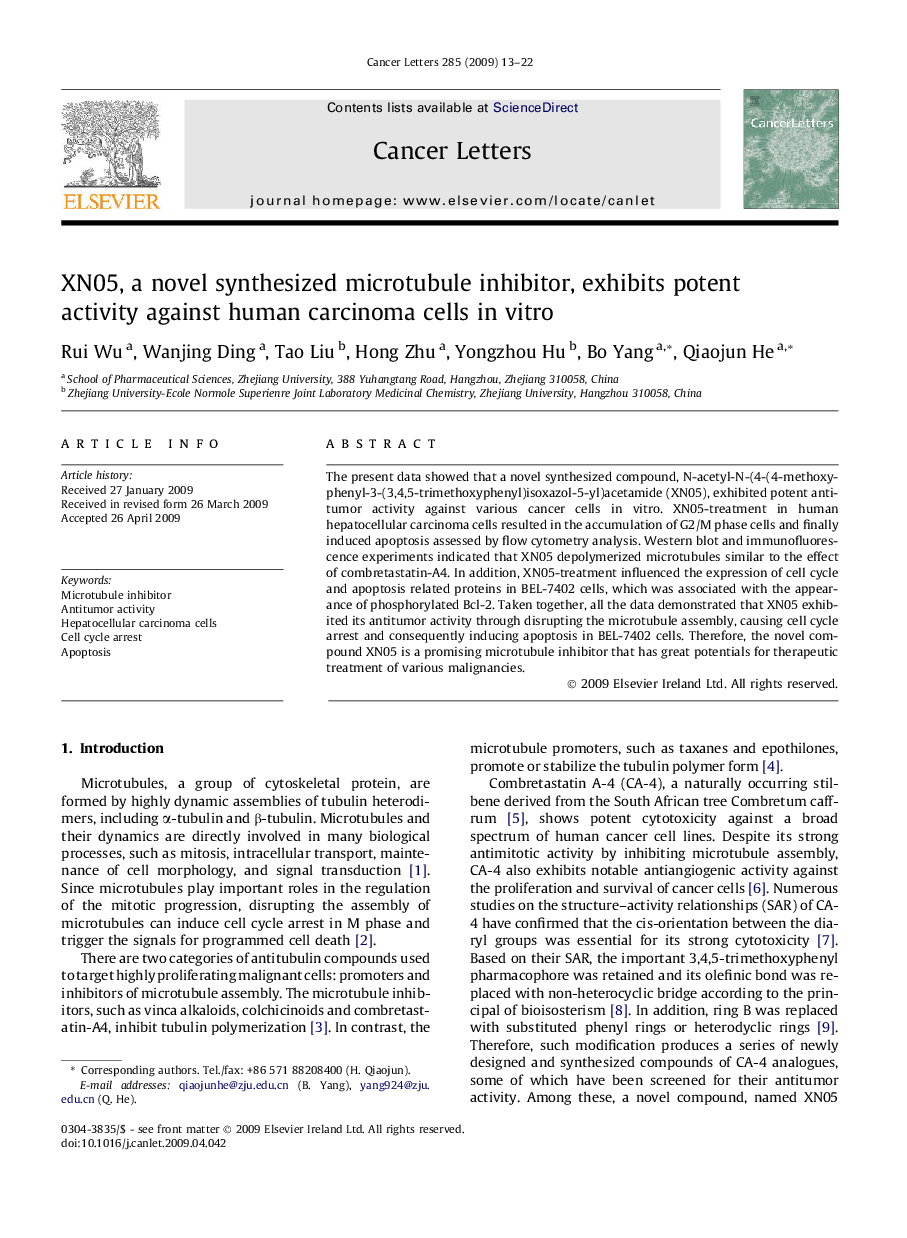| Article ID | Journal | Published Year | Pages | File Type |
|---|---|---|---|---|
| 2116536 | Cancer Letters | 2009 | 10 Pages |
The present data showed that a novel synthesized compound, N-acetyl-N-(4-(4-methoxyphenyl-3-(3,4,5-trimethoxyphenyl)isoxazol-5-yl)acetamide (XN05), exhibited potent antitumor activity against various cancer cells in vitro. XN05-treatment in human hepatocellular carcinoma cells resulted in the accumulation of G2/M phase cells and finally induced apoptosis assessed by flow cytometry analysis. Western blot and immunofluorescence experiments indicated that XN05 depolymerized microtubules similar to the effect of combretastatin-A4. In addition, XN05-treatment influenced the expression of cell cycle and apoptosis related proteins in BEL-7402 cells, which was associated with the appearance of phosphorylated Bcl-2. Taken together, all the data demonstrated that XN05 exhibited its antitumor activity through disrupting the microtubule assembly, causing cell cycle arrest and consequently inducing apoptosis in BEL-7402 cells. Therefore, the novel compound XN05 is a promising microtubule inhibitor that has great potentials for therapeutic treatment of various malignancies.
